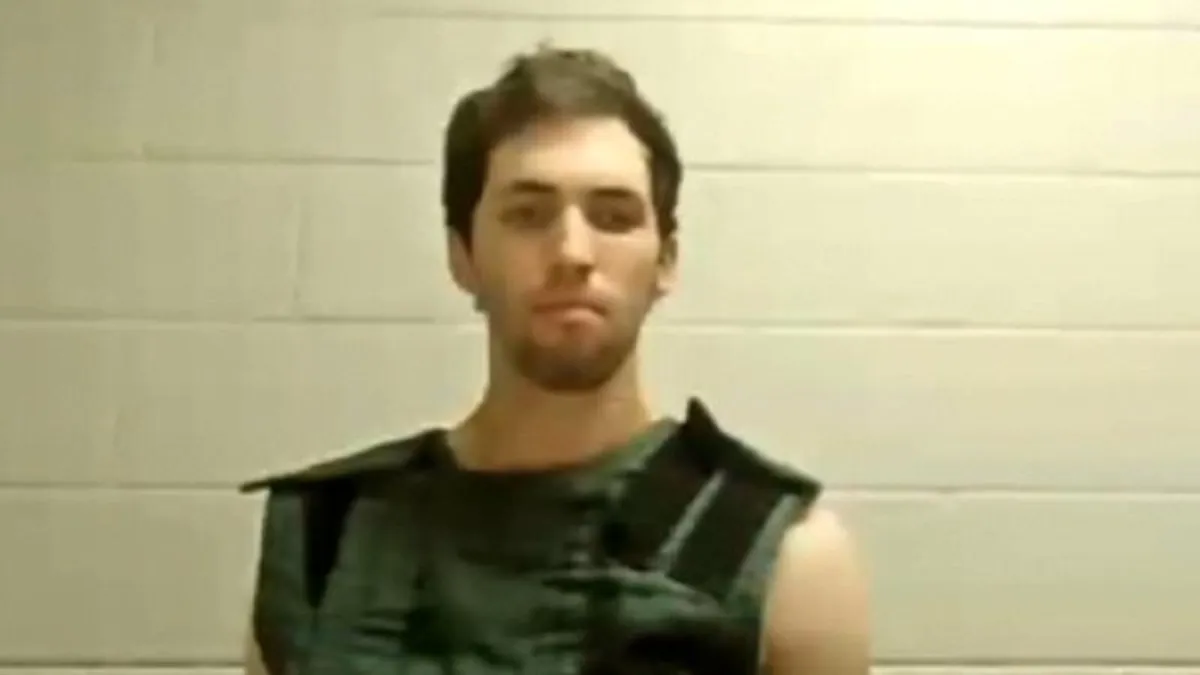
On Tuesday, prosecutors officially charged Tyler Robinson with aggravated murder in connection with the shocking killing of prominent conservative political activist Charlie Kirk. The tragic event, which occurred just six days prior at an event held at Utah Valley University, has sent ripples of concern and outrage throughout the nation, highlighting the escalating violence permeating American politics. In a significant move, Utah County prosecutors opted to file charges through an information document instead of a traditional indictment, allowing them to directly charge the suspect and initiate a probable cause hearing.
The charging document for the 22-year-old suspect outlines compelling evidence gathered by investigators, including DNA found on the suspected murder weapon and a text message confession. Prosecutors have indicated their intent to seek the death penalty for Robinson, emphasizing the severity of the crime.
According to the charging document, Robinson "intentionally" targeted Kirk due to his "belief or perception regarding Charlie Kirk’s political expression." While the document does not elaborate on specific issues that may have motivated Robinson, it does reveal that he expressed to his roommate and family that he believed Kirk "spreads too much hate" and that he had "had enough of his hatred."
In addition to the charge of aggravated murder, Robinson faces multiple other charges, including two counts of obstruction of justice for allegedly concealing the firearm used in the shooting and destroying evidence related to his clothing at the time of the attack. He is also charged with felony discharge of a firearm and committing a violent offense in the presence of a child. Notably, prosecutors have leveled two counts of witness tampering against Robinson for instructing his roommate to delete incriminating texts and remain silent if questioned by law enforcement.
On the day of the shooting, Robinson sent a text to his roommate instructing him to "look under my keyboard," where the roommate found a note that read, "I had the opportunity to take out Charlie Kirk and I’m going to take it." This alarming revelation prompted a frantic response from the roommate, who questioned whether Robinson was joking. Robinson later expressed regret for involving his roommate, stating he had hoped to keep the incident a secret until his death.
Following the shooting, a university police officer initiated a search for potential shooting positions, leading to the discovery of markings consistent with a sniper on a rooftop near where Kirk was seated. Surveillance footage captured an individual, later identified as Robinson, moving across the roof and dropping an item consistent with a rifle. After the shot was fired, the footage showed Robinson fleeing the scene and disposing of the firearm, which was later found wrapped in a towel.
In the wooded area adjacent to Utah Valley University, investigators uncovered a bolt-action rifle, which contained both fired and unfired rounds. Forensic analysis confirmed that DNA consistent with Robinson was found on several parts of the rifle and the towel it was wrapped in. This evidence strongly ties Robinson to the crime, amplifying the weight of the charges against him.
Intriguingly, the bullet casings recovered from the scene featured various engravings, some of which Robinson referred to as "mostly a big meme" in texts to his roommate. Among the inscriptions were phrases like "NoTices Bulge OWO What’s This?" and "Hey fascist! Catch!" which have been interpreted as indicative of Robinson's political motives. Insights from his mother indicate that Robinson had recently shifted towards more leftist political beliefs, further complicating the narrative surrounding his motivations.
About 33 hours after the incident, Robinson surrendered to the Washington County Sheriff’s Office, accompanied by his parents and a family friend. This decision came after his mother recognized him in surveillance footage and expressed concern over his wellbeing. During their conversations, Robinson alluded to his involvement in the shooting, stating that "there is too much evil" and that Kirk spread "too much hate." Ultimately, it was the intervention of a family friend, a retired deputy sheriff, that encouraged Robinson to turn himself in, along with the evidence he had disposed of.
This tragic incident not only highlights the grave implications of political violence in America but also raises critical questions about mental health, political rhetoric, and the responsibilities of individuals within a polarized society. As the case against Tyler Robinson unfolds, it serves as a sobering reminder of the consequences that can arise from deep-seated ideological conflicts.